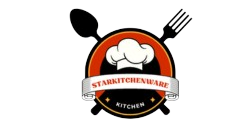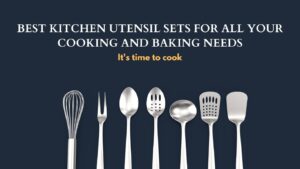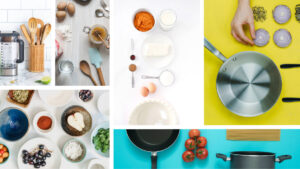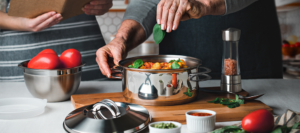Copper cookware is renowned for its superior heat conductivity, elegant appearance, and professional performance.
This guide delves into the advantages, maintenance tips, and considerations for copper cookware, ensuring you make a well-informed decision for your culinary adventures.
What is Copper Cookware?
Copper cookware is made primarily from copper, often lined with another material like stainless steel or tin to prevent direct contact between copper and food. The unique properties of copper make it a preferred choice among professional chefs and cooking enthusiasts.
Benefits of Copper Cookware
1. Exceptional Heat Conductivity: Copper is an excellent conductor of heat, providing precise temperature control. This allows for even heating and quick response to temperature changes, making it ideal for delicate sauces and precise cooking techniques.
2. Uniform Heat Distribution: Copper cookware ensures even heat distribution across the cooking surface, reducing the risk of hot spots and ensuring consistent cooking results.
3. Visual Appeal: With its rich, warm hue and polished finish, copper cookware adds a touch of luxury and sophistication to any kitchen. It often becomes a focal point, enhancing the overall aesthetic of your culinary space.
4. Durability: High-quality copper cookware, especially when properly maintained, can last a lifetime. The sturdy construction and robust materials make it a worthwhile investment for serious cooks.
Caring for Copper Cookware
Proper maintenance is crucial to preserve the performance and appearance of copper cookware. Here are some essential care tips:
1. Cleaning: Hand wash copper cookware with mild detergent and a soft sponge. Avoid abrasive cleaners or scouring pads, which can scratch the surface. To remove tarnish and restore shine, use a mixture of lemon juice and salt or a commercial copper cleaner.
2. Polishing: Regular polishing helps maintain the bright, reflective surface of copper. Apply a thin layer of copper polish or a homemade solution of vinegar and salt, then buff with a soft cloth.
3. Cooking Temperature: Avoid using high heat settings, as copper cookware heats quickly and can become excessively hot. Medium to low heat is generally sufficient for most cooking tasks.
4. Utensils: Use wooden, silicone, or plastic utensils to prevent scratching the inner lining. Avoid metal utensils, which can damage the interior surface.
5. Storage: Store copper cookware carefully to prevent dents and scratches. If stacking is necessary, place a soft cloth or paper towel between each piece to protect the surfaces.
Considerations When Choosing Copper Cookware
When selecting copper cookware, consider the following factors to ensure you choose the best option for your needs:
1. Lining Material: Copper cookware is often lined with stainless steel or tin. Stainless steel is durable and easy to maintain, while tin provides a non-stick surface but may require periodic re-tinning.
2. Thickness: Opt for cookware with a substantial thickness (at least 2.5-3 mm) to ensure durability and optimal heat conductivity. Thinner copper can warp and may not perform as well.
3. Weight: Copper cookware can be heavier than other types. Ensure that the weight is manageable for your cooking and handling preferences.
4. Price: High-quality copper cookware is an investment, often more expensive than other materials. Consider it a long-term addition to your kitchen, offering superior performance and longevity.
5. Compatibility: Check that the copper cookware is compatible with your stovetop, especially if you have an induction cooktop. Many copper pieces require an induction interface disk for use on induction stoves.
Conclusion
Copper cookware is a timeless addition to any kitchen, celebrated for its exceptional heat conductivity, aesthetic appeal, and professional-grade performance.
By understanding its benefits, maintaining it properly, and considering key factors when making a purchase, you can enjoy the many advantages of copper cookware for years to come.





